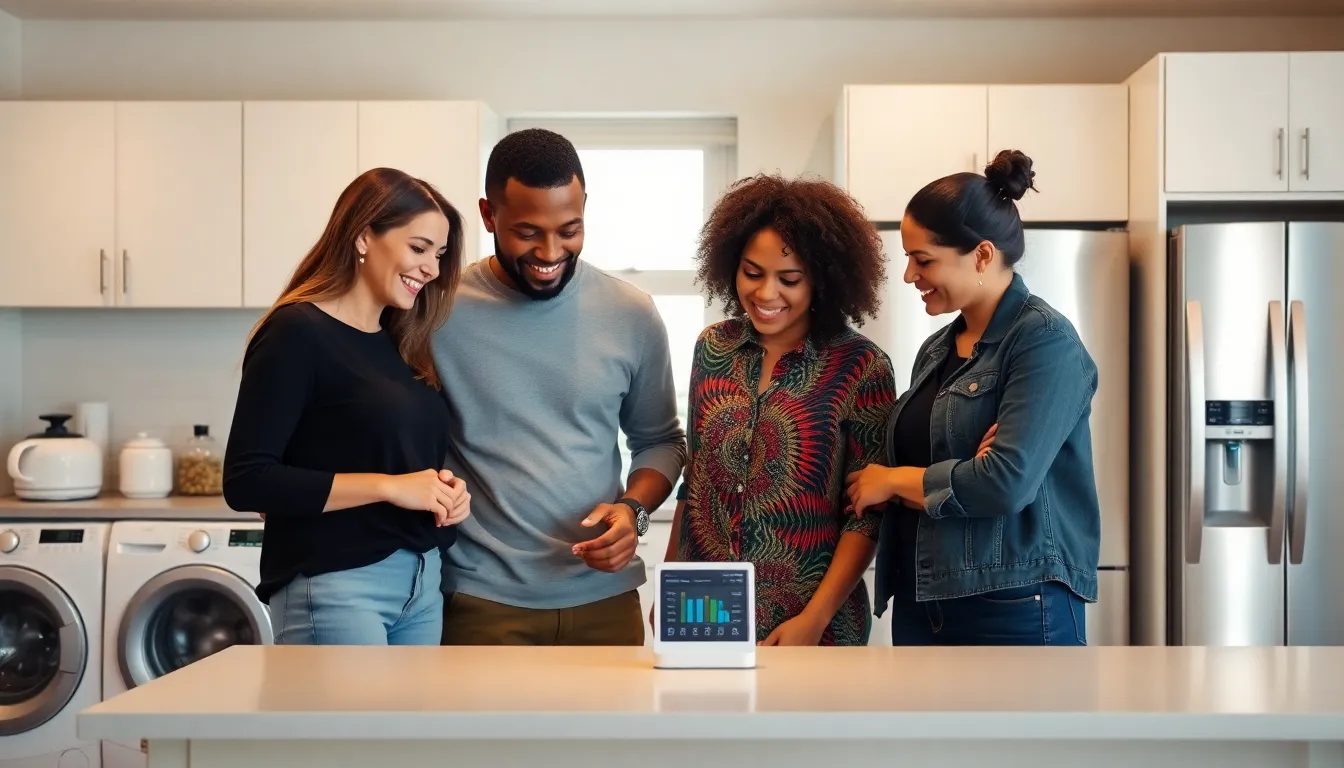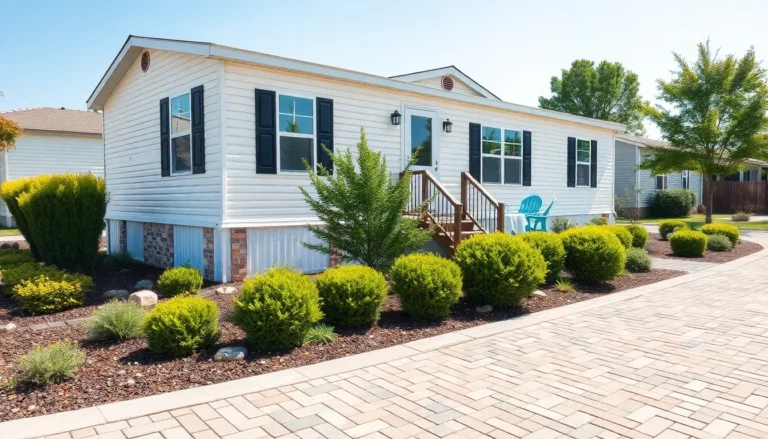Table of Contents
ToggleIn a world where energy bills seem to rise faster than a cat on a hot tin roof, finding ways to <a href="https://barabaracartland.com/saving-tips-for-young-adults”>save energy has never been more crucial. Not only can it lighten the load on your wallet, but it’s also a chance to flex those eco-friendly muscles. Who knew being green could feel so good—and save you some green too?
Understanding Energy-Saving Hacks
Energy-saving hacks refer to practical strategies aimed at reducing energy consumption while maintaining comfort and convenience. These methods help individuals and businesses lower their energy costs and contribute to environmental sustainability.
What Are Energy-Saving Hacks?
Energy-saving hacks encompass a variety of techniques, such as using energy-efficient appliances, sealing windows and doors, and adopting smart home technologies. They promote behaviors that minimize electricity use during peak hours. Installing LED lighting instead of traditional bulbs offers another easy switch. Implementing such strategies improves overall energy efficiency in households and commercial spaces.
Benefits of Implementing Energy-Saving Hacks
Implementing energy-saving hacks provides significant benefits, including lower utility bills and a reduced carbon footprint. It enhances comfort by maintaining consistent temperatures year-round. Improved energy efficiency often increases the lifespan of appliances. Many individuals also find that using less energy can lead to a more sustainable lifestyle. Communities benefit as well, since collective energy conservation contributes to public health and environmental preservation.
Home Energy-Saving Hacks

Implementing energy-saving hacks enhances comfort while reducing costs. Several practical strategies can lead to significant savings.
Insulation Improvements
Insulation improvements significantly enhance home efficiency. Properly insulating attics and walls prevents heat loss during winter and keeps interiors cool in summer. Using energy-efficient materials allows homeowners to maintain consistent temperatures. Seal gaps around windows and doors to further reduce drafts. Regularly checking for leaks contributes to effective insulation. Upgrading insulation can lead to energy savings of 10-50% annually, depending on the home’s current state. Investing in high-quality insulation materials pays off in long-term energy savings.
Efficient Appliance Usage
Efficient appliance usage maximizes energy savings in households. Energy Star-rated appliances typically consume less electricity, reducing utility bills. Running dishwashers and washing machines with full loads conserves energy and water. Setting refrigerators to the recommended temperature of 37°F can enhance efficiency. Unplugging devices not in use prevents phantom energy loss. Scheduling usage during off-peak hours takes advantage of lower energy rates. Regular maintenance of appliances ensures they operate at peak efficiency, leading to sustainability.
Lifestyle Energy-Saving Hacks
Energy-saving hacks can significantly reduce energy consumption while promoting sustainable living. Here are some practical strategies to adopt.
Smart Usage of Electronics
Turn off electronics when not in use to prevent unnecessary energy drain. Set up power strips for multiple devices, allowing easy shutdown with one switch. Utilize timers and smart plugs to automate the energy use of appliances. Whenever possible, choose energy-efficient LED bulbs instead of traditional incandescent ones. Reduce screen brightness on devices to save energy. Unplug chargers when devices are fully charged, preventing them from drawing power unnecessarily.
Adopting Eco-Friendly Habits
Incorporating eco-friendly habits can lead to substantial energy savings. Opt for reusable bags and containers to minimize waste and reduce manufacturing energy. Start composting food scraps to lessen landfill contributions and lower methane emissions. Choose public transportation, cycling, or walking instead of driving, which reduces fossil fuel consumption. Rethink laundry habits by washing clothes in cold water and air-drying them whenever possible. Plant native trees and shrubs to provide natural insulation while enhancing neighborhood environments. Prioritize digital documents over paper to decrease printing energy needs.
Outdoor Energy-Saving Hacks
Outdoor energy-saving strategies can significantly lower utility bills while contributing to a sustainable environment. Implementing these changes not only helps one save money but also enhances the comfort of outdoor living spaces.
Landscaping for Energy Efficiency
Creating shade with trees and shrubs around the home can reduce cooling costs by 30%. Consider planting deciduous trees that provide summer shade and allow sunlight in during winter. Additionally, using native plants minimizes the need for irrigation, reducing water consumption. Ground cover plants also help insulate the soil, maintaining cooler temperatures near the foundation. Paths can benefit from natural materials that absorb heat, further enhancing energy efficiency.
Using Renewable Energy Sources
Utilizing solar panels can significantly offset electricity costs, generating up to 80% of a household’s energy needs. Wind turbines work well for areas with consistent winds, providing a renewable energy source. Even small-scale solar water heaters can efficiently supply hot water, cutting energy expenses. It’s essential to assess local resources and incentives for renewable energy installations. Investing in these technologies promotes energy savings and reduces reliance on fossil fuels.
Embracing energy-saving hacks isn’t just about cutting costs; it’s about fostering a sustainable future. By implementing simple yet effective strategies, individuals can significantly reduce their energy consumption while enjoying increased comfort in their homes.
Every small change contributes to a larger impact, from choosing energy-efficient appliances to optimizing outdoor spaces for energy conservation. The collective effort toward energy savings not only alleviates financial burdens but also promotes a healthier planet for future generations.
Adopting these practices can lead to a more mindful lifestyle that prioritizes both economic and environmental well-being. It’s time to take action and make energy efficiency a priority in daily life.




